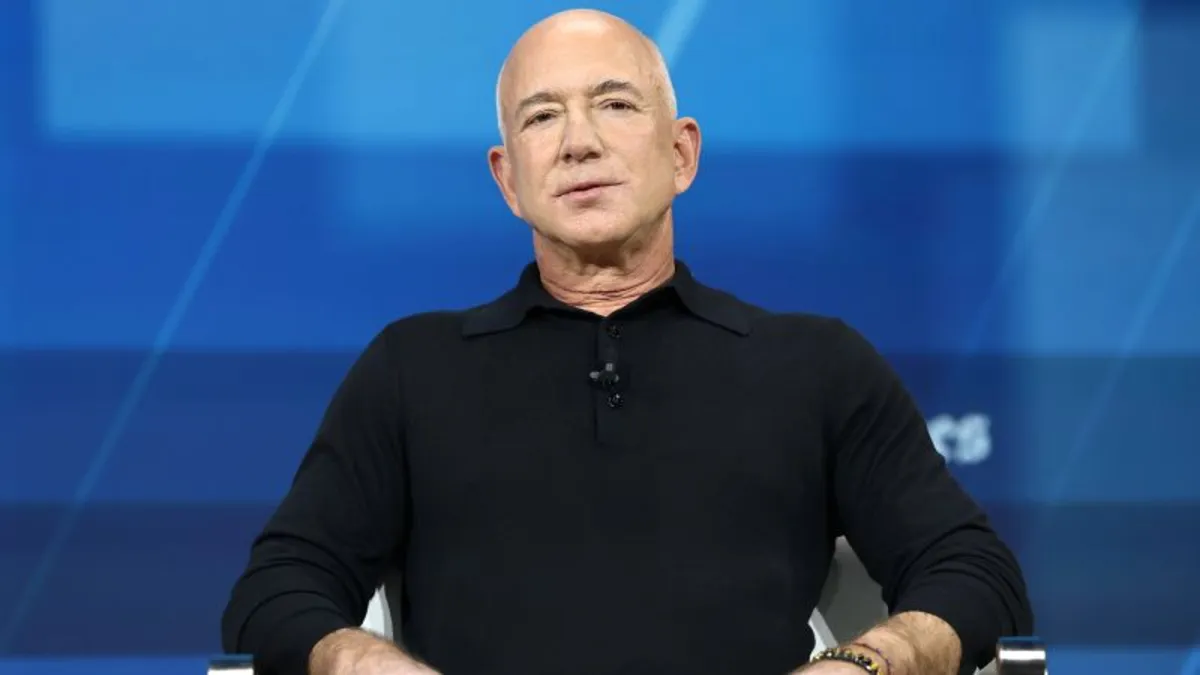
Jeff Bezos, owner of the Washington Post, unveiled a significant shift in the newspaper's opinion page on Wednesday. This change led to the departure of David Shipley, the paper's editorial page editor, creating a stir within the media company already beset by years of turmoil and leadership changes.
As part of the editorial overhaul, the Washington Post will now publish daily opinion stories anchored on two pillars: personal liberties and free markets. Bezos shared this new direction in a company-wide email and teased the announcement on a social media post. The opinion section will cover other topics, but viewpoints opposing these pillars will be left to other publications.
"I’m confident that free markets and personal liberties are right for America," Bezos stated. He emphasized that these viewpoints are underserved and aims to fill that void in the current market of ideas and news opinion. The billionaire sees the changes as rooted in American principles of freedom, which he described as ethical, minimizing coercion, and practical, driving creativity and prosperity.
David Shipley, who was offered a role in leading these planned changes, decided to step away from the Washington Post. Bezos expressed admiration for Shipley, acknowledging the difficulty and commitment required for this significant shift. Shipley, in an email to the Post’s editorial team, reflected on his decision, expressing gratitude for working alongside talented journalists.
His departure follows a period of navigating criticism from subscribers and internal staff, including defending the Post's controversial editorial decisions.
The announcement was met with mixed reactions from Washington Post staffers. Jeff Stein, the chief economics reporter, criticized the overhaul as a massive encroachment by Bezos, suggesting dissenting views will not be tolerated. Amanda Katz, a former opinion team member, condemned the changes as an abandonment of principles like accountability and human rights in favor of what she termed a billionaire’s self-interested agenda.
Conversely, some conservatives, such as Charlie Kirk and Elon Musk, praised the changes, perceiving them as positive cultural shifts.
Will Lewis, the paper’s publisher and chief executive, reiterated in an internal email that the recalibration is not about aligning with any political party but about clarifying the newspaper's stance. He emphasized the importance of serving as a premier news publication for all Americans. Despite public support for the changes, it is reported that Lewis privately warned Bezos about the potential negative impact on the publication.
As the Washington Post searches for a new opinion editor, the newspaper faces the challenge of maintaining its reputation amid these changes. Matt Murray, the executive editor, assured staffers that the newsroom's independent and unbiased work remains unchanged.
The overhaul occurs amidst broader implications, including the backlash from former top editors and a significant drop in subscriptions. Marty Baron, the former executive editor, and Cameron Barr, a former senior managing editor, voiced their disapproval, citing concerns over the erosion of diverse opinions.
The changes also follow Bezos' controversial decision to block an endorsement of former Vice President Kamala Harris, which led to a substantial loss of subscribers and staff resignations. Critics suggest that Bezos is aligning the Post’s editorial strategy to gain favor with certain political figures, despite his defense against such accusations.
As the Washington Post navigates these changes, the publication faces challenges in balancing editorial direction with maintaining its historical principles and readership.